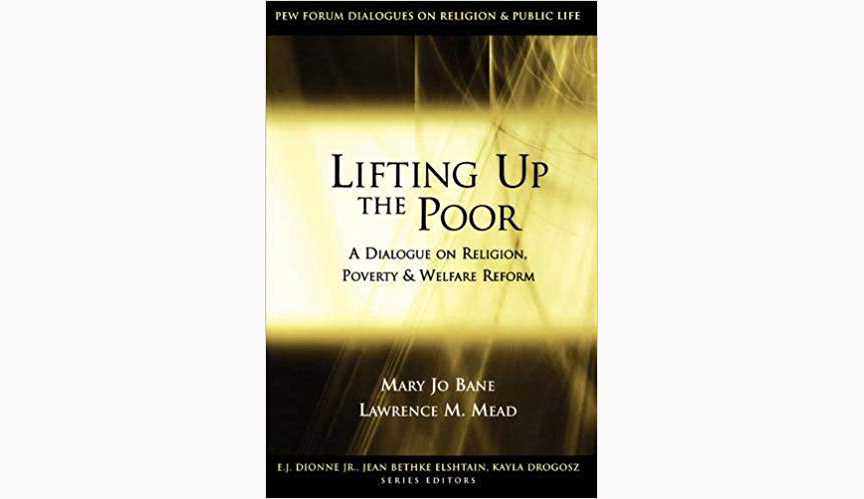Although many ancient civilizations, such as the Egyptians and Greeks, prayed to a multitude of gods, in modern culture, monotheism—particularly through Judaism and Christianity—dominates with the recognition of one universal and moral God. With the evolution, God came to represent the Supreme Being and caretaker of man and woman. Through biblical decrees, He asked that we bestow acts of loving kindness on others as well as rescue the poor and oppressed.
Currently, there is a burgeoning interest among the general public and among academics regarding the connection between religion and public behavior. The Brookings Institution, a prominent and highly respected think tank in Washington, D.C., is at the forefront of this faction. In cooperation with the Pew Forum on Religion and Public Life, Brookings is sponsoring an ongoing conversation about how public policy is molded by the moral and religious commitments of both in individuals and communities.
The first volume in the series titled Lifting Up the Poor – A Dialogue on Religion, Poverty & Welfare Reform (Brookings Institution Press, 2003). The book shows how Judeo-Christian beliefs shape our personal and political reactions toward the poor. It also reflects the opposing viewpoints of two leading social scientists, Mary Jo Band and Lawrence M. Mead, and their approaches to poverty through Christianity and Judaism.
Based on their personal theological interpretations, Band and Mead explain their definitions of poverty, which reveal very different opinions.
For example, according to Bane, Catholic teachings offer a fundamental dedication to the equal dignity of all people, and the teachings articulate a particular sensitivity toward the poor and the oppressed. Jesus, like the early Jewish prophets, “condemned injustice and exploitation and proclaimed a kingdom of God characterized by peace, justice, and forgiveness.”
Mead asserts that the institutional church affirms that “economic poverty is a priority in the Bible, that helping the poor deserves preference over other social concerns, and that the poor are to be aided in a nonjudgmental way with no questions asked about their behavior.” Foremost in the book is the fundamental question, should strings be attached to the poor?
During the Passover Seder, which occurs this spring on April 4, Jews recite the prayer, “Let all who are hungry come and eat. Let all who are in need come and share our Passover.” Similarly, Catholic bishops avow, “The poor must be cared for and protected, and when they are exploited, God hears their cries.”
Here again Band and Mean engage in significant dialogue. Bane believes the defining feature of a Catholic approach to social policy is “Its empathy for all of God’s population especially the poor, its generosity, and its hopefulness.”
Mead explains, “Church teachings about social ethics shape what society thinks ‘doing good’ for the poor means.”
The two authors maintain a highly intellectual conversation on the philosophical meanderings of poverty, examining questions such as what it means to be poor, what is a culture of poverty, what are the factors that cause poverty, and what type of aid should be implemented and structured. Once the two begin to dissect each other’s arguments, there are many opinions and propositions presented. The book is, however, written in a dry, academic vernacular with little practical advice for reducing or eliminating the effects poverty.
Nonetheless, for the socially concerned reader, the value of the book lies within its ability to show how religious principles have a strong impact on policy today and how they manage to do so in a way that is not intrusive and does not infringe upon the separation between church and state. Lastly, and perhaps most importantly, the book points out that social policy toward poverty should be a delicate balance between what is morally right and yet practical for all members of society.




